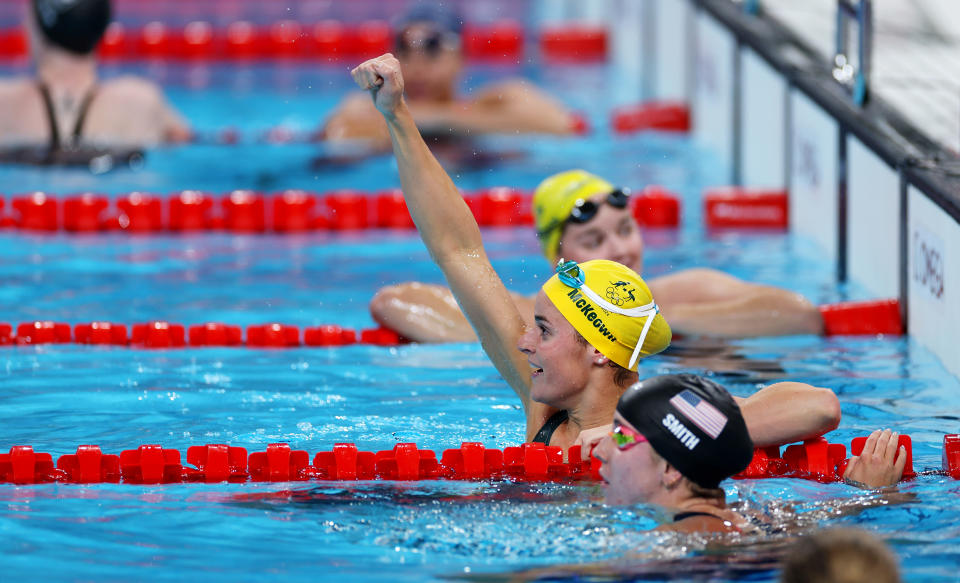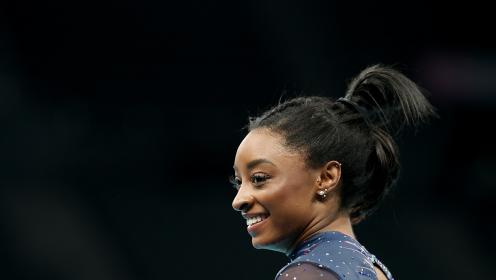
Medal table | Olympic schedule | How to watch | Olympic news
PARIS — In Part I of the head-to-head duel that could define a broader battle for swimming supremacy here at the 2024 Olympics, Australia’s Kaylee McKeown edged Team USA’s Regan Smith to win gold in the women’s 100-meter backstroke on Tuesday.
McKeown, the former world record holder, beat Smith, the current world record holder, by 0.33 seconds. They were neck-and-neck after 75 meters, but McKeown pulled away over the final 25.
Smith took silver. Fellow American Katharine Berkoff won bronze. McKeown climbed out of the pool and waved to the crowd, beaming.
And Australia, a traditional power on the rise once again, extended its early lead atop swimming’s gold medal table (4-2) to open Night 4 of the competition.
McKeown and Smith have owned women’s backstroke events since they were teens. Smith first snatched the world record at age 17, in 2019. In a span of roughly 48 hours at world championships that summer, she also broke the 200-meter record, and burst into swimming’s limelight. “I really just shocked myself at that meet,” she later said.
But then, for the better part of three years, she crumbled under the pressure that records and hype heaped onto her. She came to fear what were once her signature races. She walked into the 200 at Olympic trials in 2021 scared, and failed to even qualify. She made it to those Olympics in the 100 back, and ultimately medaled. But something inside her seemed broken.
McKeown, meanwhile, was anything but broken. She shattered Smith’s world record in 2021 at Australian trials. She swept the backstroke golds a month later. She lowered the record in 2023. She looked like a definitive Olympic favorite.
But Smith, by 2024, had refound herself.
Post-Tokyo, after one year at Stanford, she had fallen out of love with swimming. Her teenage feats felt more distant than ever before. “There were many years that went by after 2019 where I thought that I would never [swim that fast] ever again,” Smith said.
It was in the fall of 2022, though, that she began to rebuild. She left Stanford. Went pro. Connected with revered coach Bob Bowman. Slowly but surely, she began to build confidence in her aerobic capability.
In 2024, after a bout with mononucleosis in December, Smith began “knocking on the door,” as she said last month. She had a “slight mental block,” which separated her from the 57.57 she ripped off in 2019. She finally broke through in May, four years and 10 months later, with a 57.51. And that, she said, “opened the floodgates for me to do something great.”
The “something great” was a long-awaited reclaiming of the world record at last month’s U.S. trials. But in Paris a month later, McKeown, ever so slightly, was better.
“She’s 1 of 1,” Smith said of McKeown. “She’s an absolutely incredible racer.”

